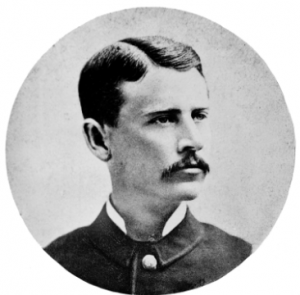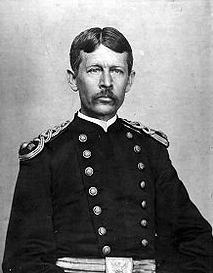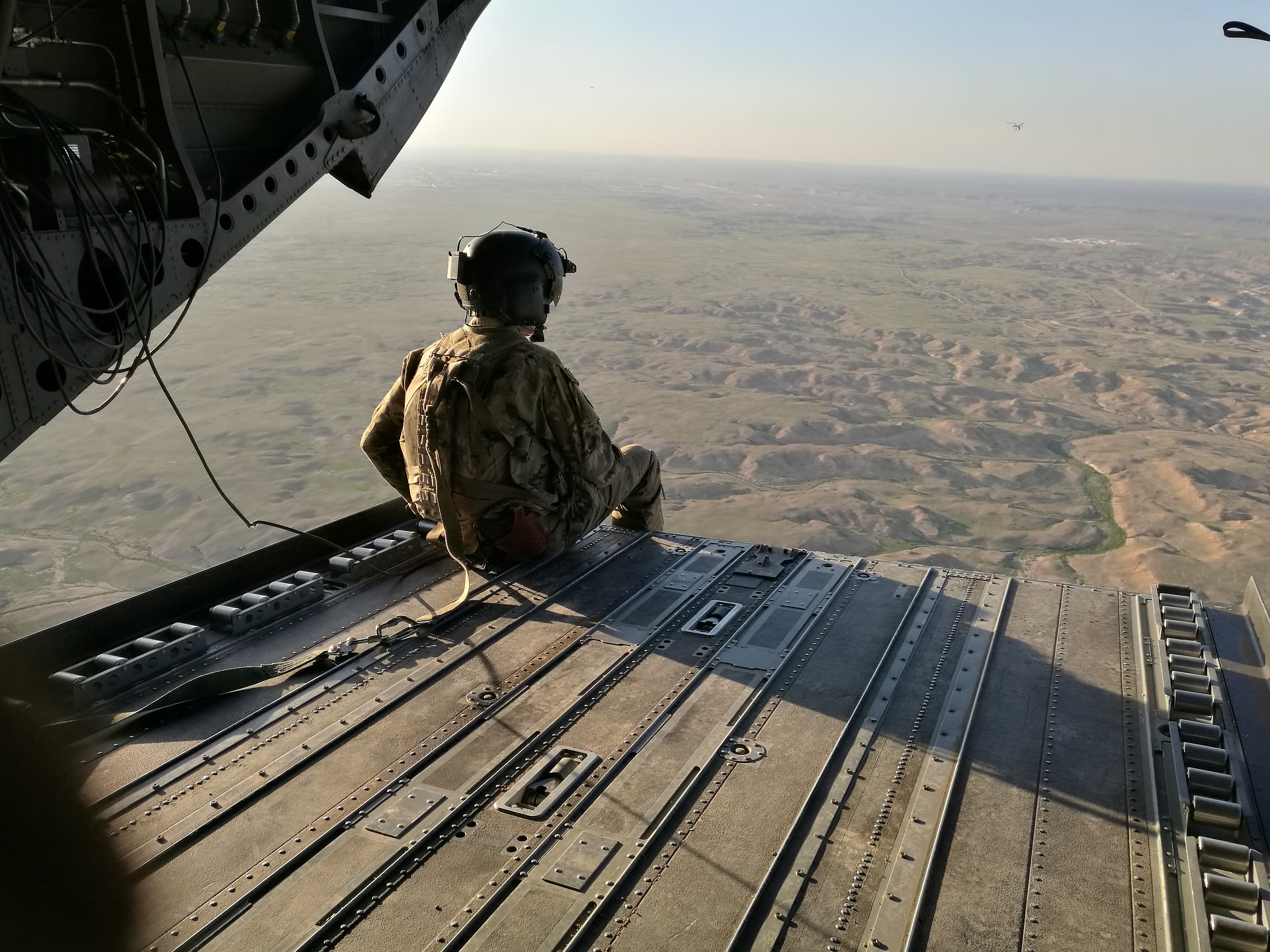This all started in Powell’s Bookstore in Portland, OR, last Sunday. I saw a book on a sale rack, called “The Good Soldiers” by David Finkel. It was about the Iraq war. I like reading books on war; partially because I’m a guy, and partially because my birth cohort was never asked or expected to fight in one, and I’ve always wondered how I would do. (Answer: really, really, badly.)
Two days later, I put the book down, amazed, moved and devastated, and called up NPR to see if they could get me into Walter Reed Hospital to pay a visit to the service members there.
I swear to you: I didn’t intend to write or talk about this in public. I didn’t want to be one of those guys who starts talking about the Wounded Warriors with the subtext of how wonderful I am for going to see them. But as will be evident, talking and writing about what I saw became very quickly both important for them and necessary for my own mental health. I’ll explain more after the jump.
While “The Good Soldiers” is a superb work of reporting and non-fiction writing, what really struck me – more than the heartbreaking stories of soldiers working, suffering and dying, and then those who survived adjusting to life afterward – was the dates. The regiment that Finkel followed to Iraq was sent there as part of the “surge,” and stayed there from April 2007 to July 2008. I don’t know about you, but I remember those years really well. I published my first book, I traveled all over the country with my show, including to New York City to accept a Peabody Award, I attended a lot of fun parties, I shared a lot of good times with my wife and kids. I had a grand time. And all during that period, I can’t say I spared more than a passing thought for the men sent into the meat grinder of the Iraq War. As Finkel notes, we were told the surge worked. We were told violence was down. And it was. Fewer Americans died during those months than in the terrible days of 2003 and 2004. (For a gripping account of the early days of the war, see Martha Raddatz’ “The Long Road Home.”) But some did die, and more were gravely wounded, and I wasn’t paying attention. Reading Finkel’s book, I felt some shame about that, and some regret, and conceived a wild notion to take advantage of an upcoming trip to DC to try to rectify that error.
I asked my colleagues at NPR to see if Walter Reed would like me to visit the soldiers, hopefully, in the company of the genuine celebrities, NPR was hosting for this year’s White House Correspondents Association Dinner. (I thought the troops would be happier to see me if I was standing next to, say, John Legend.) But this was all just last Wednesday, it was all too sudden to sign up anyone else by Saturday, and so I found myself sitting by myself in the lobby of Building 10, Walter Reed Bethesda, at 10 AM Saturday morning, nervous as hell.
I was greeted by a Sergeant, an Army medic who had served in Basra, Iraq but now was attached to the hospital working with the Wish Well visitor program. (I will not mention any names in this account, both as I did a terrible job of keeping track of them, and because I don’t know, and didn’t ask if the service members I spoke to would want their names publicized.) The Sergeant was a matter of fact, and pleasant without being overly friendly. He told me that my name had been circulated around the ward and that ten soldiers had elected to have me visit. He didn’t know if any of them knew who I was; he said most of their visitors were Congressional or Military, which resulted in a particular kind of visit, and that he expected they would just be grateful to visit with someone not there out of either a sense of self-importance or duty. He told me I would be spending about 10 minutes with each patient, for a total of about two hours. We got into an elevator and rose upwards.
The single best piece of advice I got in preparing for this visit came from, of all things, a profile of Garry Trudeau by my friend Gene Weingarten in the Washington Post. Trudeau has been deeply involved in writing about, advocating, and supporting wounded troops, and he told Weingarten:
“In these soldiers’ minds, their whole identity, who they are right now, is what happened to them. They want to tell the story, they want to be asked about it, and you’re honoring them by listening. The more they revisit it, the less power it has over them.”
My wife also gave me similar advice. “Don’t try to be amusing,” she said, knowing me well. “Let them talk.”
The first soldier was in bed, surrounded by six members of his family, including his fiance, who was slumped over asleep. His left foot was missing, and he was in obvious pain, and also obviously in a fog of painkilling drugs. I chatted with his family and heard about his injury – an IED in Afghanistan. My memory of this first visit was foggy because I was slowly realizing something that for the life of me I had not anticipated: the men I would be meeting was not in rehab, or in recovery. These were not the guys I had read about in magazine features, gamely learning to walk on prostheses or deal with TBI, months after their injury. These were guys who had just been gravely hurt, weeks or in some cases days before. They were sitting with family members who – also just weeks or days before – had gotten a call from the Army or Marines saying, “Your son has been wounded in battle,” and had with hearts pounding and tears streaming thrown things into a bag and gotten on a plane for Germany or Washington. These wounds were fresh and raw, in every sense.
I will not, or can’t give you details of every visit I made that morning, even a day after. I sat by bedsides and, as Trudeau advised, asked them what happened, and heard their stories. As I listened, I tried to focus, and control my own feelings of horror and dismay, and my growing urge to walk out of the room and tell the Sergeant, patiently waiting outside, that I could take no more and needed to leave now. (The sergeant told me later that this does happen.)
But these are the things I remember most vividly, from the six men I spoke to yesterday:
– The Green Beret, still with his downrange beard (and yet still looking terrifically young) who told me that at the end of a ten hour firefight, he and his team saw a figure jump out of the building they were engaged with; how they saw that the person was an 11-year-old boy and how they lowered their weapons; how that boy then pulled out an AK-47 and started spraying bullets at them. How one of those bullets passed through his hip and groin. How another caught one of his friends in the upper chest and killed him. How he would never have children, and yet that his wife was two months pregnant; which he considered a “miracle.” How the bullet was still in his right hip.
How he felt and knew that his friend who died was a good man and that he, the Green Beret would be able to accept and understand his death.
– An Army Sergeant, a tough as nails Army lifer from Northern California, who sat pulling at the bandages over the stumps of his above the knee amputations as his Spanish speaking mother offered me water from their trays of food and drink. He told me about how his patrol had found one IED, then another, and then a third; how he was escorting the bomb disposal guy toward one of those IED’s when the undiscovered fourth IED exploded. How he found himself on the ground, being tended to by one of his soldiers, and kept asking “How bad is it?” and the soldier said, “You’ll be fine, Sarge,” and he kept demanding to know, “HOW BAD IS IT?” and finally shouted, “YOU MOTHERFUCKER I WOULD TELL YOU IS IT ONE LEG OR TWO” and the soldier said, “It’s two, sergeant,” and he said to himself, Okay, fine, I’m a double amputee.
How his two sons already were coming to understand his injuries; how he would threaten to “whip their butts” and his 3 years old said, “How you gonna catch me when you got no legs,” and he said, “I guess you got me there.”
How this had happened on Easter Sunday, three weeks before. (I thought about watching my kids run around and find the candy we had hidden for them, as I watched from a chair.)
– The young Marine, his voice hoarse from having a breathing tube inserted down his throat during his most recent surgery, telling me in precise, almost desperate detail how exactly his team had entered a house in Afghanistan, how they had seen the pressure plates for the rigged IEDs in the main doorway and avoided it, how they had checked this door and that door, how other Marines were on the roof firing at the enemy, how his lieutenant had gone into the courtyard, how he had stepped through a doorway that he somehow did not clear, and how the explosion lifted him up so high he could see the soldiers on the roof, level with him. His legs were shattered and severely wounded but he still had them both and hoped to walk again.
– the Marine Captain, in his mid-30s the oldest man I spoke to, a fan of my show. After two tours in Iraq he had been sent to advanced academic training at the Naval War College in Monterey, and had become immersed in academic studies, he told me only half joking, as a kind of therapy for his PTSD. He learned Farsi, and international studies, and went to Afghanistan as an intelligence officer, talking to Afghans and troops on the ground to understand better what was going on there, how the networks of interrelationships on the ground were steering the course of the war. How he had been wounded by a suicide bomber – a 12-year-old kid – who happened to detonate his explosive while the Captain’s back was turned, and thus the Captain’s life was saved by his gear on his back, which absorbed most of the shrapnel. Still, he took serious wounds to his buttocks and legs, and despite his deep and fierce interest in the underlying process of the war, he thought this injury might end his interest in overseas deployment. How his tray table was covered with notebooks and academic books on the war. How I recommended a recent novel I had read about Marines in combat and how he laughed and said, he thought he knew enough about that.
– and the last patient I visited, a cheerful young Navy Corpsman who had been serving his first months of duty with a Marine platoon, when an IED exploded and injured his legs, both of which he was still grateful to have. This bomb went off last Sunday. The same day I picked up the book in Powells. In the course of the same week in which I read about the war and, decided to visit, he had fought the war, been badly injured, evacuated from Afghanistan, transported, and treated, to meet me there.

Again: the dates. All of these wounds, all of these firefights, all of these injuries, all of these deaths (the Green Beret’s friend, the boy who shot him, the suicide bomber) had happened in the past month. The war, as I write this, as you read this, grinds on, and next week there will be more young men in the wards of Walter Reed and other hospitals. If they are like the men I met, they will be cheerful, determined, soldiers and sailors and Marines through and through, who are proud of what they have done and are determined to heal and live without a trace of regret or self-pity.
And, I think, they will want their stories told. One thing that they all told me was that they don’t think that anyone in the US knows or understands what’s going on in Afghanistan; that the media tells little of what’s happening, and when it tries, gets it wrong. This has nothing to do with politics; many of these men had done multiple tours, serving initially under President Bush, and they were injured after being sent into battle by President Obama. Whether or not they are fighting for Freedom or Democracy or Security or Empire or Oil is irrelevant to the fact that they are fighting, and getting gravely hurt, because we as a country asked them to.
The very least we can do is pay attention, and listen to their stories, and I am deeply glad that I had the chance to do so.
I went that night to the White House Correspondents Dinner, and it was a lot of fun; I’m not going to say I didn’t enjoy hanging with my friends and colleagues and meeting the glittery celebs and hearing the President make his jokes and Jimmy Kimmel make his. But I kept thinking (and talking) about the men I had met earlier in the day, and thinking how the true stories that must be told, and the real focus of our nation’s attention, should not be on the glowing ballroom, but on the quieter, smaller rooms at Walter Reed.










